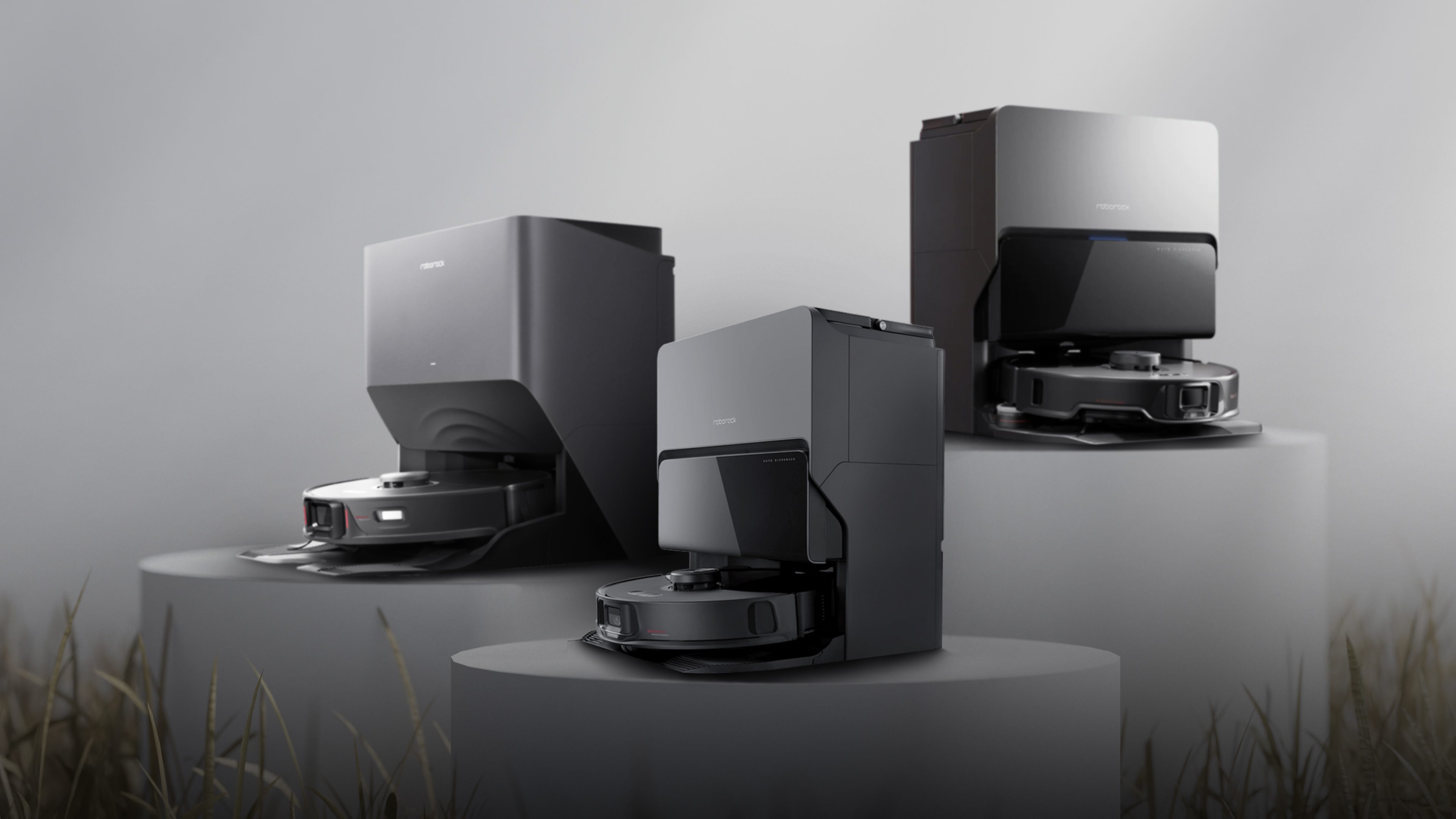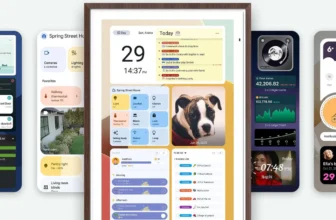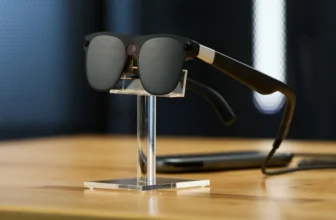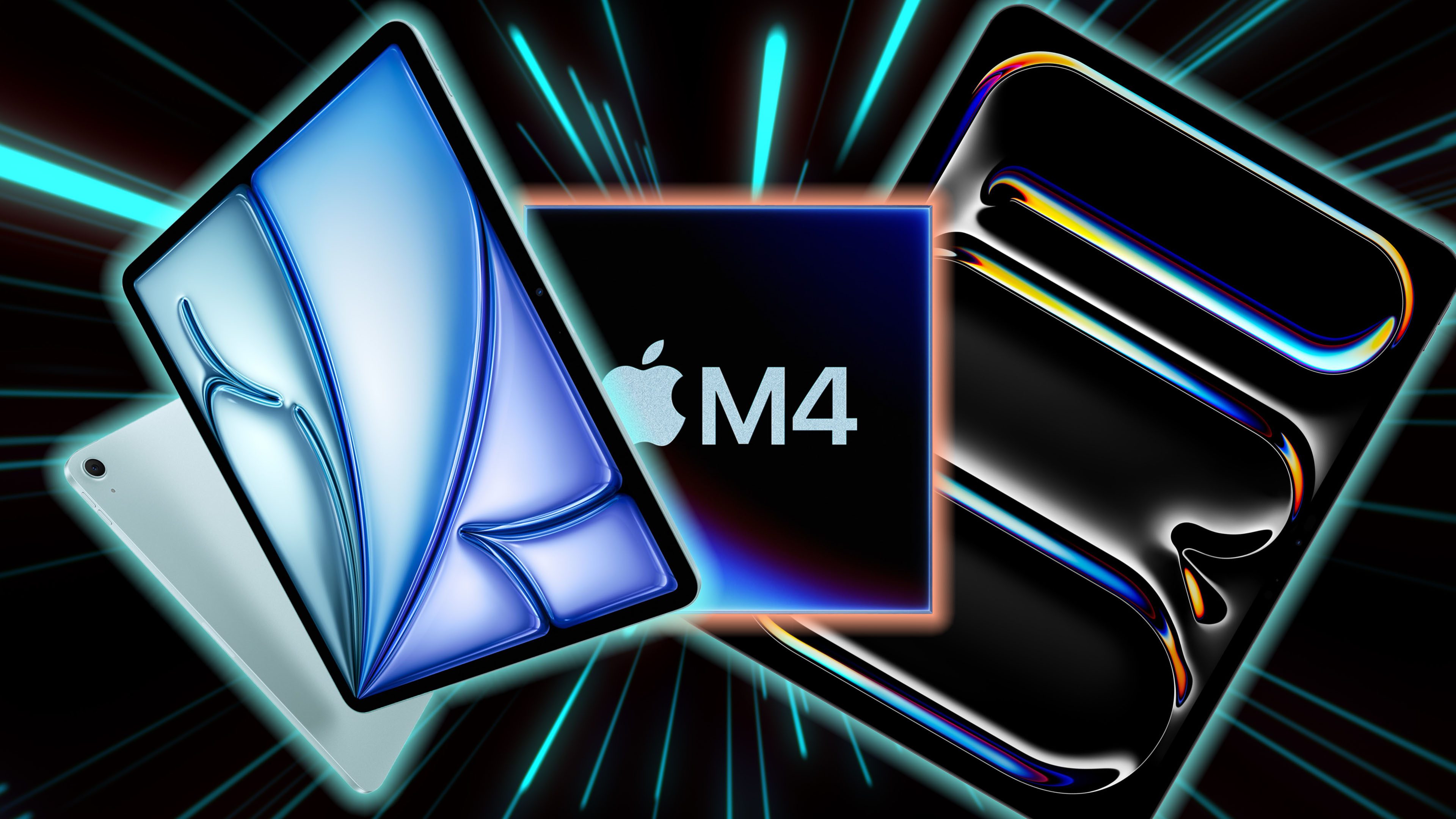
Apple is facing pressure in its iPad division. In the recently published quarterly figures, the tablet division was the only one to fall short of its targets, with sales of $5.6 billion compared to the forecast of $5.91 billion. And what does Apple do? It proudly announces the ‘biggest iPad event since the launch of the first iPad.’
You can decide for yourself whether it lived up to that claim by taking the time to watch the keynote—or you can read our summary of the Apple event with all the highlights below.
iPad Pro: The first Apple tablets with an OLED display
In 2024 and beyond, the Pro iPad will once again be available in two different sizes: in 11-inch and 12.9-inch format, which Apple is now calling “13-inch”. Apart from that, however, there are plenty of innovations. Apple is changing the display technology—instead of LCDs, there is now an OLED display, which the manufacturer calls “Ultra Retina XDR”.
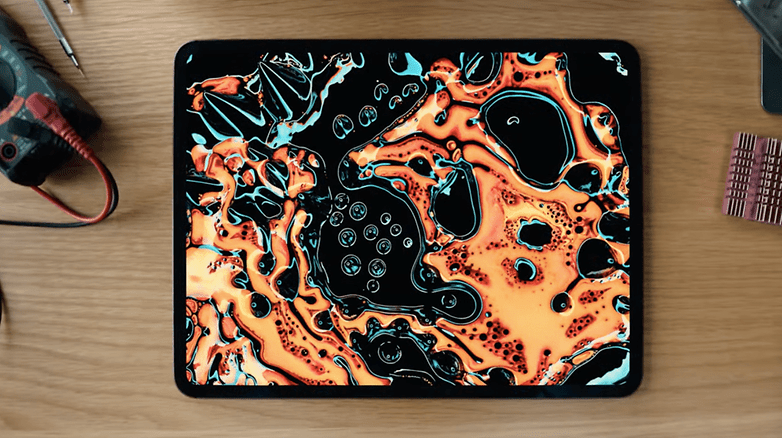
The special trick with the display is that two OLED panels are installed on top of each other. And Apple wouldn’t be Apple if there wasn’t a special name for it, namely “Tandem OLED”. The advantage of this double screen is its high brightness. Apple promises that the two iPad Pros will achieve a peak HDR brightness of 1,600 nits; in standard mode, the brightness is a maximum of 1,000 nits for SDR and HDR content.
And yes: there is a long, long-overdue innovation for the front camera, which now slides over the long side of the screen. This should also help when letting go of the notebook. Thanks to the new camera position, you no longer look past your conversation partners during video calls in landscape format, but “only” slightly above them.
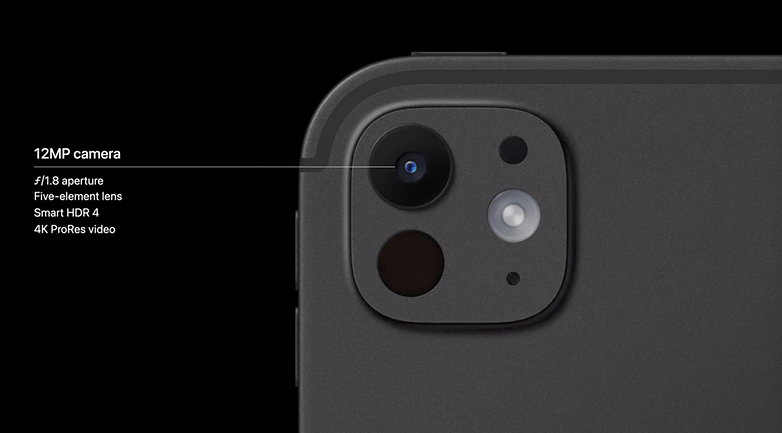
There are still a few minor improvements to the rear camera. The resolution of the individual photo module is still 12 megapixels, the video mode has a maximum resolution of 4K, and a LiDAR scanner is also installed again. What is new, however, is the Adaptive True Tone Flash which, in cooperation with the AI, should offer significantly improved performance when photographing documents.
Under the hood is the new Apple M4 SoC, which is manufactured using the second-generation 3 nm process. Of course, the chip is faster than the M2 in the old iPad Pro—and more economical, too. Apple promises 50 percent more CPU performance than the old M2 – with the same performance, energy consumption is said to have been halved.
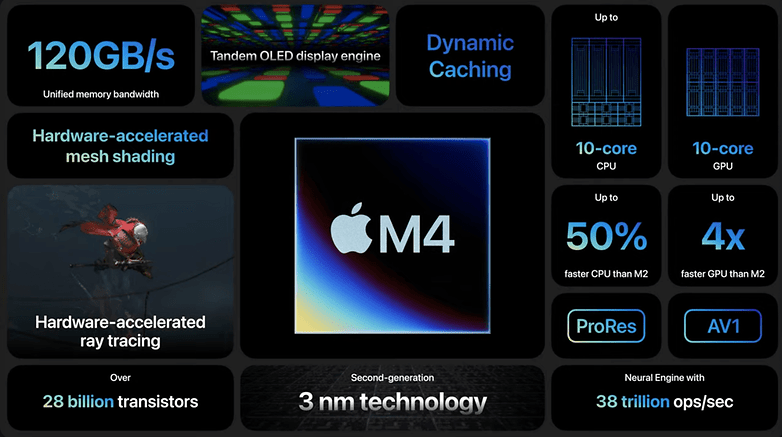
And of course, the manufacturer has also enhanced the AI performance, increasing the NPU performance to 38 trillion OPS—that’s 60x faster than the very first Neural Engine. This, the million-dollar question for nerd quiz night, debuted in the A11 Bionic in 2017. The keynote also included a demo demonstrating how the AI performance can be used to separate subjects from the background in videos. However, we will revisit the topic of video later, as there were several significant announcements.
There was also an interesting superlative: the 13-inch version of the iPad Pro is the thinnest Apple product of all time—at 5.1 mm, it is even thinner than the iPad Nano. The 11-inch Pro is a touch thicker at 5.3 mm. The two tablets weigh 444 and 579 g respectively and are available in “Silver” and “Space Black”.

If the following price overview doesn’t scare you off: You can pre-order the two new iPad Pros now, with availability starting on May 15.
| iPad Pro 11″ (2024) Wi-Fi |
iPad Pro 11″ (2024) 5G |
iPad Pro 13″ (2024) Wi-Fi |
iPad Pro 13″ (2024) 5G |
|
|---|---|---|---|---|
| 256 GB | $999 | $1,199 | $1,299 | $1,499 |
| 512 GB | $1,199 | – | $1.499 | – |
| 1 TB | $1,599 | – | $1,899 | – |
| 2 TB | $1,999 | – | $2,299 | – |
The Pro iPads with 1 TB and 2 TB storage capacity are also available in a special version with a nano-textured glass that is designed to minimize reflections when used in sunlight. For this, you will pay an additional 130 euros for each of the four models in question.
New Magic Keyboard for the iPad Pro
Apple has also introduced a new Magic Keyboard to go with the new Pro iPads. The magnetically attached keyboard is super-thin and available in black and white to match the new Pro iPads. The new features of the Magic Keyboard include a series of function keys above the letter keys. Apple has also enlarged the trackpad, which supports haptic feedback.
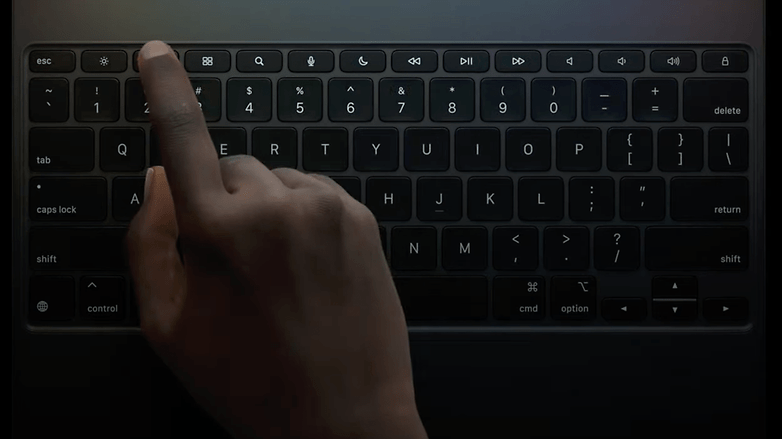
Of course, the Magic Keyboard for the iPad Pro also gets a new price tag and now costs a hefty $349.
iPad Air: Now in two different sizes
The iPad Air has steadily approached the Pro model in previous generations and is now taking the next step. Starting in 2024, Apple will offer its ultra-slim tablet in two sizes—11 and 13 inches. The new format provides 30 percent more display area. Unlike the Pro models, the iPad Air will continue to use LCD panels, specifically the Liquid Retina displays that were featured in the previous iPad Pro generation.
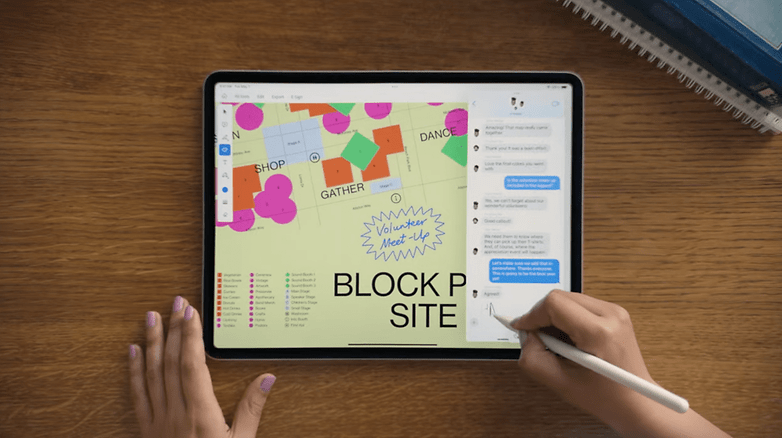
And yes: the new iPad Air also moves the front camera to the long side of the display so that you no longer have to look past your conversation partners on the left or right during video calls. Center Stage is of course also supported, and there are stereo speakers optimized for landscape format with spatial audio support.
Under the hood of the iPad Air are the M2 chips from the last iPad Pro generation. Sure, the chips are already two years old, but let’s be honest: if you’re not using hardcore applications such as video editing or on-device AI, the performance will be more than enough for you. According to Apple, the new iPad Air with the M2 chips is 50 percent faster than its predecessors with the M1 chip.

The new iPad Airs support the Magic Keyboard and, of course, the various Apple Pencils – including the brand new Apple Pencil Pro. But we’ll come to the Pro stylus shortly.
You can pre-order the new iPad Air now—just like all Apple innovations. Availability and delivery will then start on May 15.
| iPad Air 11″ (2024) Wi-Fi |
iPad Air 11″ (2024) 5G |
iPad Air 12.9″ (2024) Wi-Fi |
iPad Air 12.9″ (2024) 5G |
|
|---|---|---|---|---|
| 128 GB | $599 | $749 | $799 | $949 |
| 256 GB | $699 | – | $899 | – |
| 512 GB | $899 | – | $1,099 | – |
| 1 TB | $1,099 | – | $1,299 | – |
Apple Pencil Pro: what the new iPad stylus can do
Together with the new Pro iPads, Apple has also introduced a new Pro stylus: the Apple Pencil Pro. The special feature of the stylus is the new input methods. On the one hand, there is a new “squeeze sensor”. If you squeeze the stylus, a context menu with options for the brush tool opens, depending on the app. The Pencil Pro provides haptic feedback for every successful squeezing gesture.
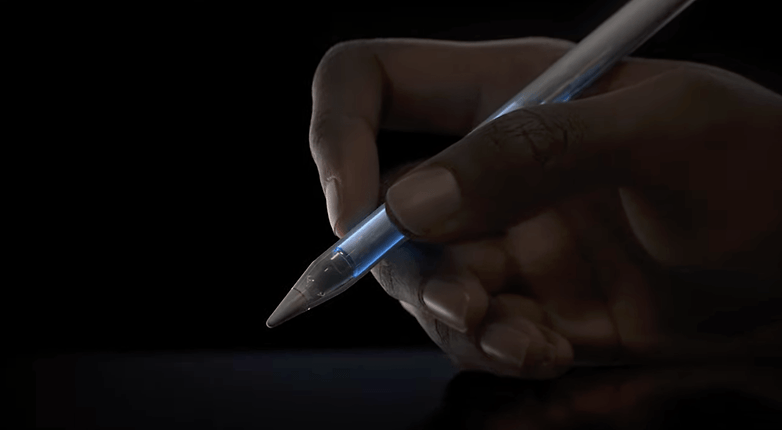
Apple has also installed a roll sensor in the Pencil Pro. If you rotate the Pencil around its axis between your thumb and index finger, it also performs various actions. For example, you can intuitively rotate a flat, wide brush and rotate objects in 3D programs. 3rd party developers can define their use cases here.
Of course, the new Pencil Pro also attaches magnetically to the various iPads. In the eternal battle between “Pencil and sofa crevice”, Apple has given the stylus the all-important weapon with Find My support.
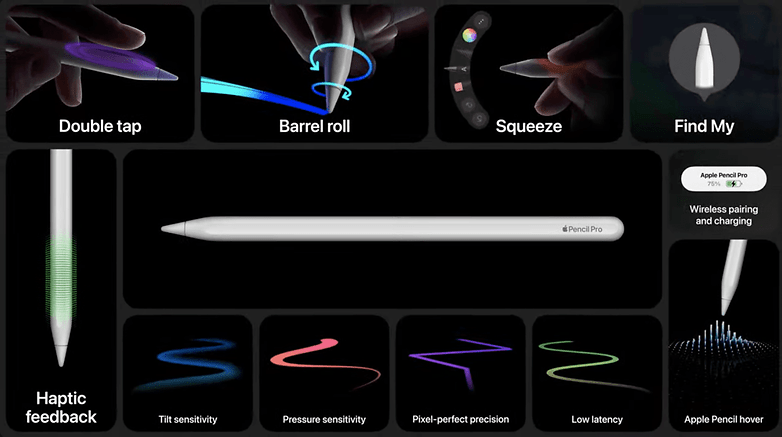
The Apple Pencil Pro is also available to pre-order now and will be available in stores from May 15. The price? $129!
iPadOS 18: First preview of WWDC 2024?
We won’t find out what new features iOS 18 or iPadOS 18 has to offer until WWDC in mid-June. But Apple has already hinted at a few interesting new features, particularly in the Pro app versions of Logic and Final Cut.
Final Cut Pro
Apple’s video editing software Final Cut Pro is getting a live multicam mode. Here you can connect to four iPhones or iPads as external cameras to a control room iPad. According to Apple, all you have to do is install the new “Final Cut Camera” app on the camera devices—and you’re ready to go. The recordings are then automatically synchronized to the control room iPad.
And if you run out of storage space with all the footage, you will also be able to edit video projects directly on SSDs connected via Thunderbolt. The Final Cut Pro interface has also been given a complete makeover and will be better optimized for touch in the future.
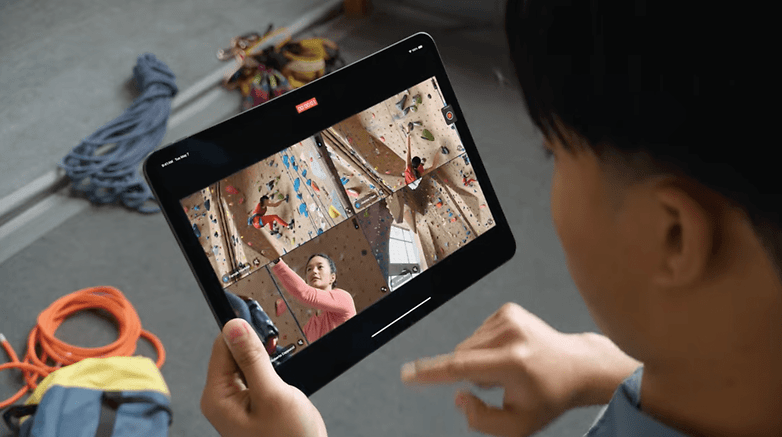
Logic Pro
There are also new features for the digital audio workstation software Logic Pro. In addition to numerous AI-supported instruments and effects, the new remixing function is particularly exciting. Here, existing songs can be split into four tracks with the help of artificial intelligence using the so-called stem splitter: Vocals, Bass, Drums and Rest. You can then edit the tracks individually or delete and replace them as you wish.
That’s all the news from the iPad event. What do you think of the new tablets, and which models are more for you—the iPad Pro or the iPad Air? I look forward to your comments!




